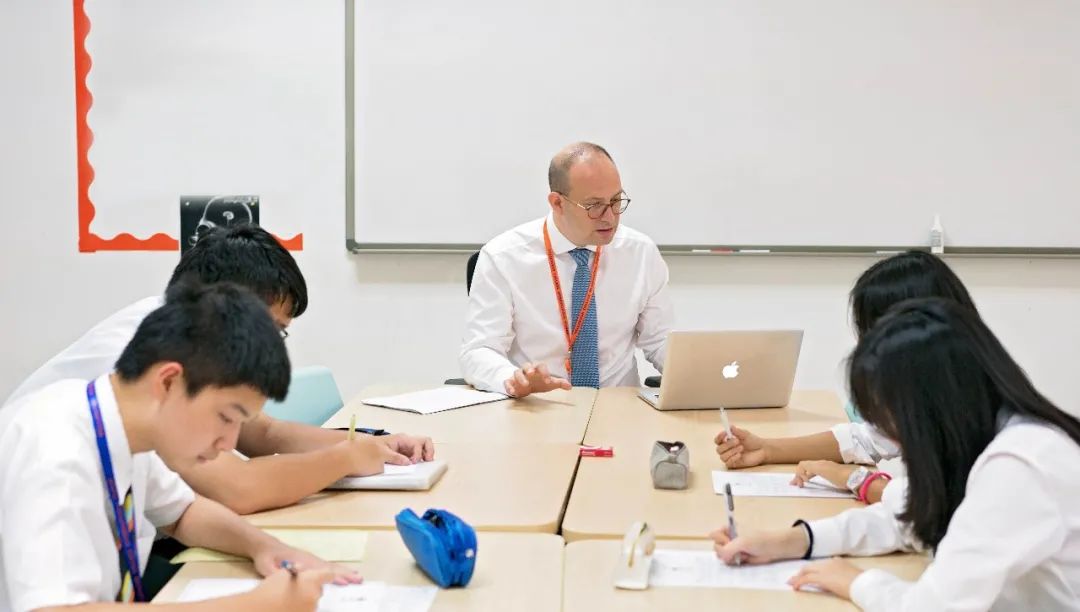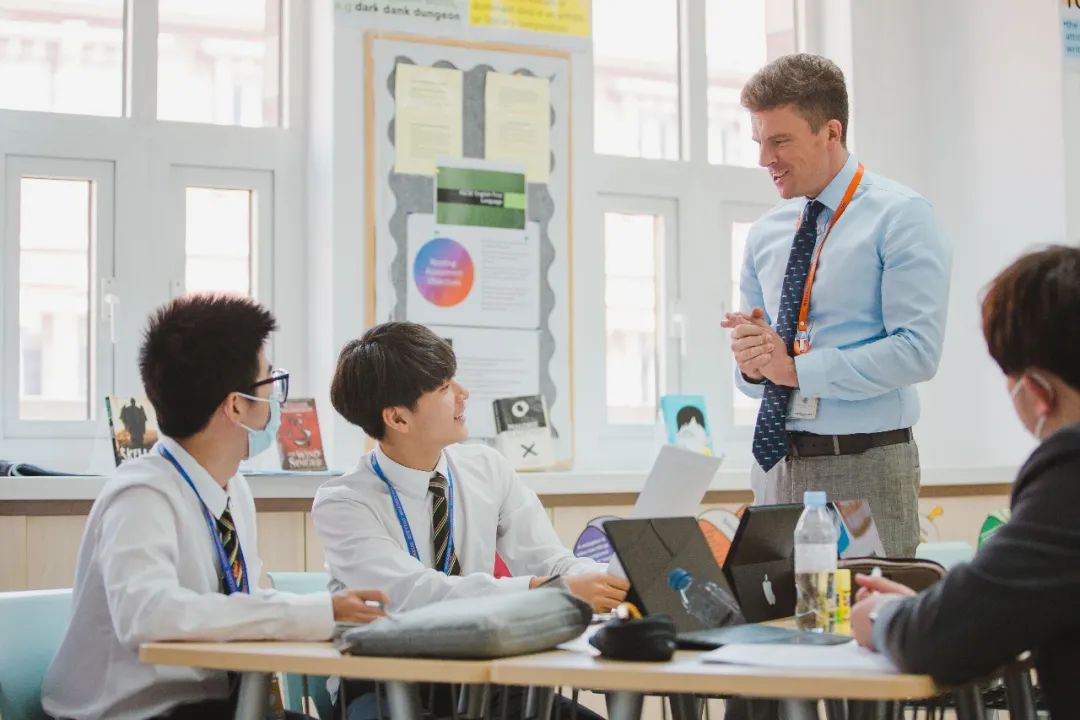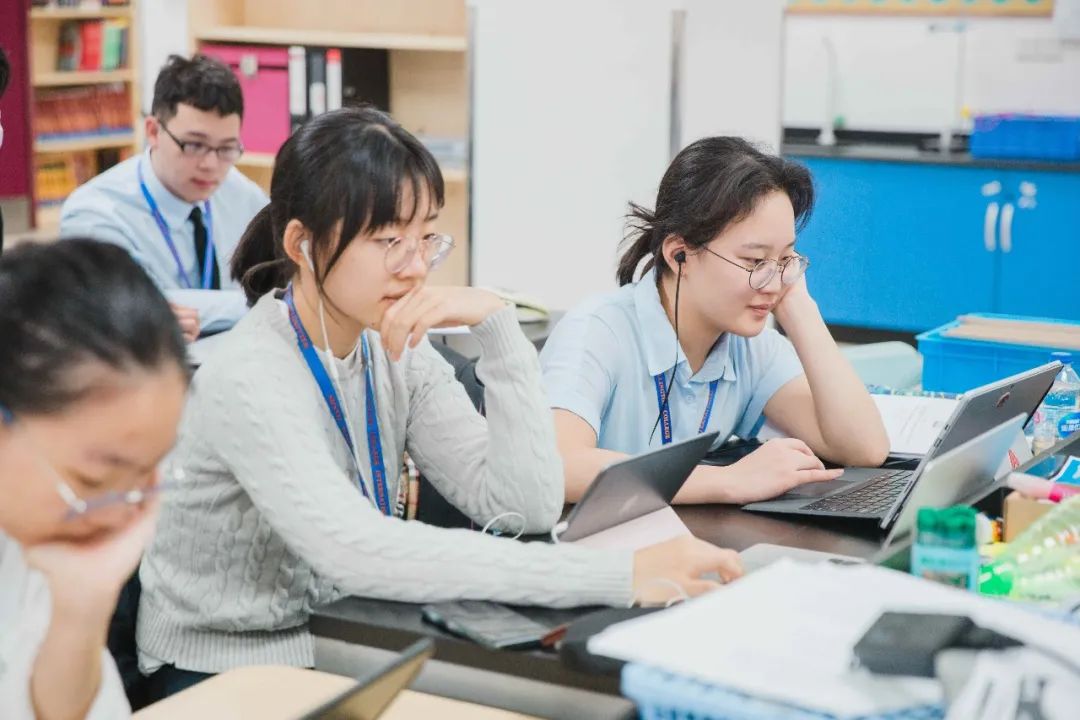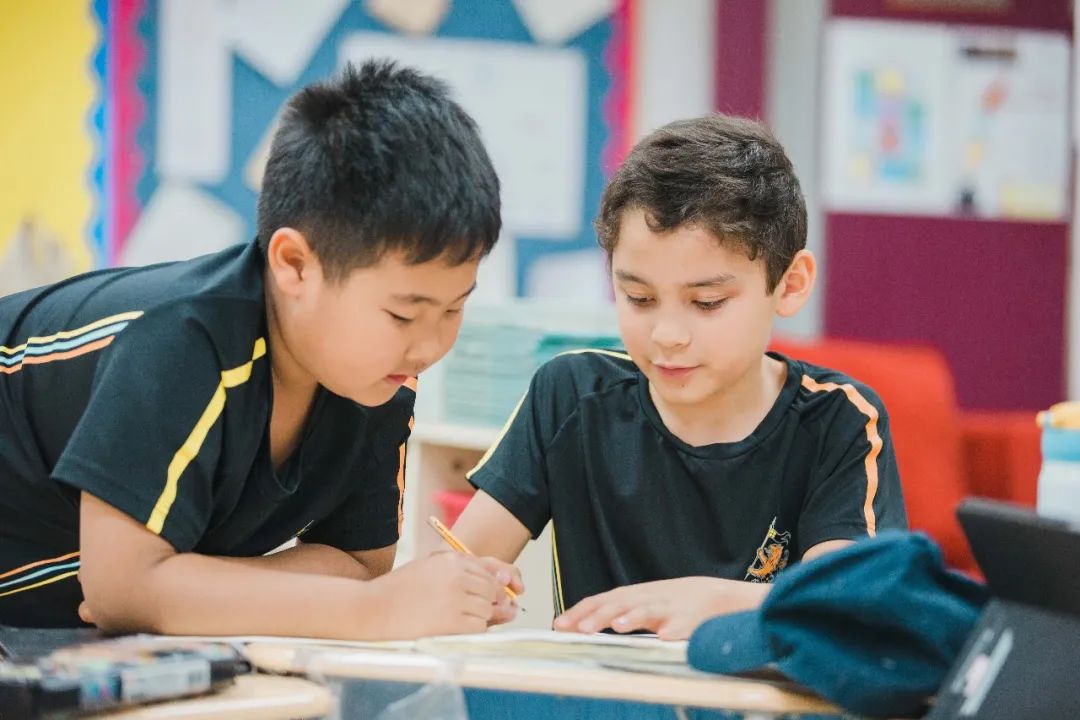Educational Insights丨Young People and Safe Screen Time

Toby Roundell
Pastoral & Safeguarding Lead
At Wellington College International Tianjin, we have a Digital Safeguarding Policy and Acceptable User Policies (AUPs) that are in place to help pupils and staff stay safe online. As you know, AUPs are distributed at point of admission to the College in the Senior School, and in the Junior School, pupils sign a simple agreement at the beginning of each year.
But as a parent, I know how very troublesome it can be to define and establish boundaries around internet usage at home. In today's brief article I want to outline five simple principles that may help you have positive discussions with your child about their screen time and internet use.

Principle
1
Use digital devices together
The key here is to get involved with your child’s online activities in the same way as you would play and have fun in the physical world. Shared experiences will lead to trust which, in turn, will make it easier for your child to talk through with you anything that they see that upsets them. Also, having shared experiences online will enable you to talk about the good, the not so good and dig deeper into the ‘why’!

Principle
2
Create family rules
This is really about establishing a good grounding and a positive start to children's exploration of the virtual world, and critical here is the process of shared agreements and not enforcing your own will to sharply. Your child needs to feel a sense of ownership over the parameters agreed with them for the rules to be effective.
|
I will write more about family agreements in another article but for the time being these areas are worth exploring: |
1. Designated screen times
2. Location when using a device
3. Adults use of devices
4. Online services and website your children can use at home and when visiting friends
5. Impact on overall health and wellbeing
6. Consequences

Principle
3
Learn about services, content, technology and age ratings
The principle here is that you are informed enough and have your own sense of ‘digital savviness’ to be able to make firm decisions to support your child’s safety and to guide them in areas where there may be some scope for problems. Some key things to consider:
1. Are there child safety settings on the devices your child uses? Have you applied them? Also, on your own devices have you set things up so your device is child proof safe?
2. What apps, sites and services is your child using? Check the age ratings of apps, films and games. Be firm in having discussion with your child around these age ratings and delve deeper into the content if your child is adamant that there is no concern.
3. Can your child spend money online, download games freely or chat with random people? If so, revisiting your settings and boundaries is important.

Principle
4
Be a good role model
This next principle is so important for there is nothing that grates more, especially when you are a young person, when things are perceived to be “unfair!” Your modelling of device and internet use is a critical influence on your child. Also, if you are well disciplined around your own use, you have a strong position in which to hold firm in the inevitable conflicts that will arise when boundaries are pushed. The important factor is to be clear. If there are different rules for adults and children in your family around usage be clear as to what those differences are and communicate the ‘why’ to your child. Get the rules on paper so you, and they, can always refer back to them, and please be sure that you are accountable to it too.

Principle
5
Frame Conversations around the Wellington Values
Managing screen time with young people is a big challenge but remember that our College’s values of respect, integrity, kindness, courage and responsibility are excellent points of reference from which you can have open conversation with your children around their usage. All Wellington pupils know the values, so discussions formed with and through them will help support you and your children and will furthermore, lead to meaningful ‘screen-time’ outcomes.

Conclusion
So in summary, the five principles all explore, and in fact, encourage you, as parents, to engage in constructive dialogue with your child around their internet usage. Each family has their own set of values and these will ultimately underpin your final decisions and agreements. As educators, we really look for opportunities and ways to learn - and part of learning is making mistakes - so finding and establishing frameworks that empower your child’s learning around their management of devices is highly recommended. Cutting off all access to devices at home may have its place as a short-term consequence, but denying the opportunity to develop responsible internet practices over the long-term may result in your child lacking the skills and discipline to manage their internet and device usage when they have transitioned to university.
In the next article, I will outline some possible ways to structure family agreements around internet and device usage and some of the key questions that need addressing to get your child’s ‘buy in’.
Source: South West Grid for Learning
https://swgfl.org.uk/resources/young-people-and-screentime-a-good-start/
Related Articles








 Channel
Channel 
 Linkedin
Linkedin  Weibo
Weibo  Facebook
Facebook  Ins
Ins 







